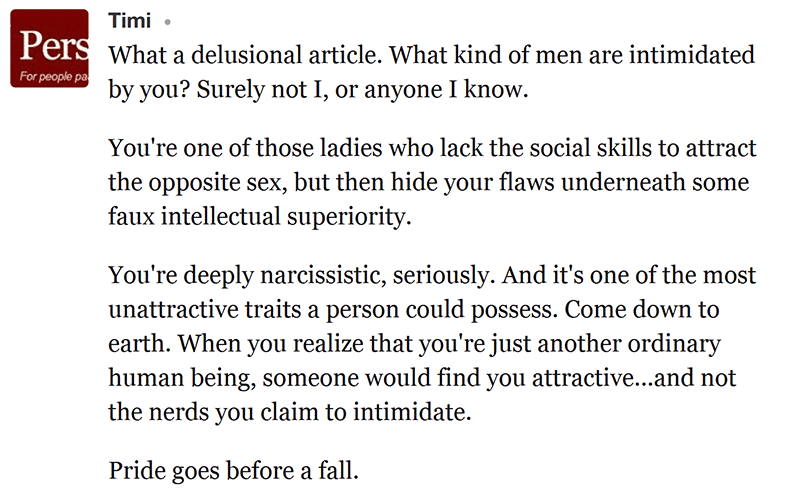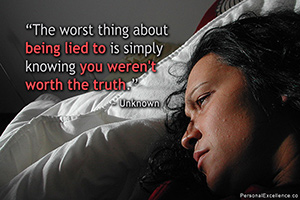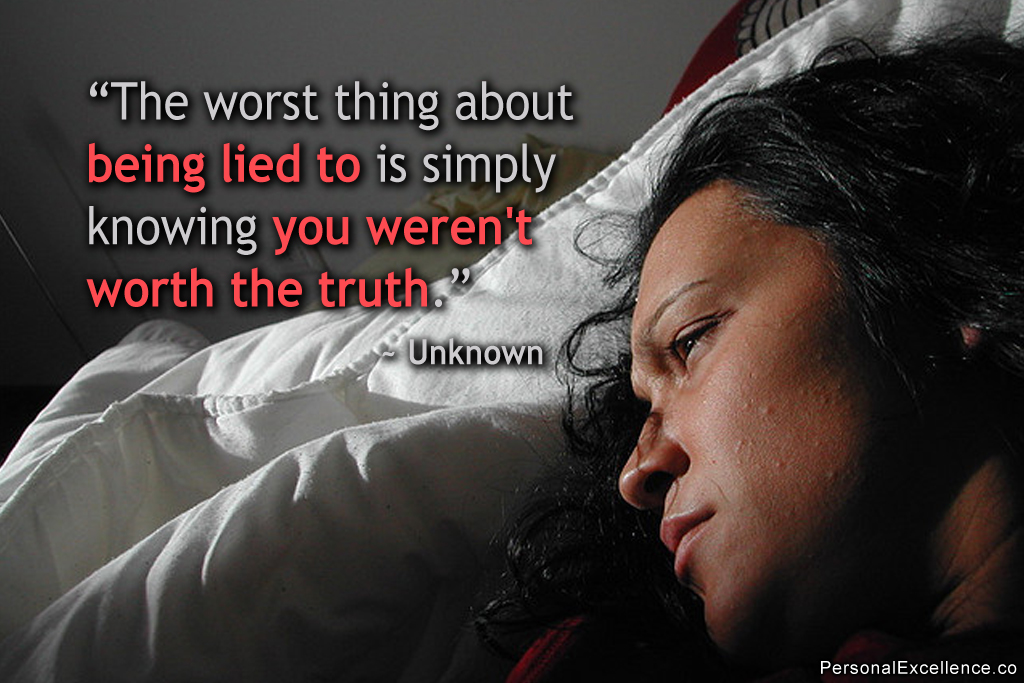
Have you heard of the phrase “Empty vessels make the most noise”?
It’s a proverb that means that those with the least knowledge, wisdom, and ability are often the ones who talk the most and the loudest. They do whatever it takes to make their presence felt the most — hence making the most noise.
Why Do Empty Vessels Make the Most Noise?
Empty vessels are used in the analogy because in physics, empty containers create louder noises than filled ones.
If you take two empty glasses, fill one up with water, and then blow into both glasses, you’ll find that the empty glass creates a louder noise than the filled one. That’s because the air column in the empty glass allows sound waves to pass through and bounce off the sides of the glass, creating an amplified vibration.

In physics, empty vessels make the most noise. Apparently, this is the case in real life too. (Image: torbakhopper)
I find this proverb very true in real life. Oftentimes, people with the loudest and most negative responses may not know more than others. They are loud only because there is an emptiness in them echoing these noises, such as
- an emptiness in their mind (lack of knowledge, education),
- an emptiness in their heart (unhappiness),
- an emptiness in their life (lack of direction), and
- an emptiness in their self-worth (lack of confidence),
hence creating the loud noises we hear.
Noisy Comments
On my blog, I often receive critical comments.
The loudest comments (as in the abrasive comments, not the longest) usually don’t have a point to add. Rather, they convey the commenters’ unhappiness and I am simply their dartboard at the moment.
Consider these comments that I received before:
1) Comment to Do You Dread Growing Older?, an article I wrote in 2009 (I was 25 then) about growing older and why there’s no need to dread it:

2) Comment to Why I Used to Be Afraid of Intimidating Men, my article about how I used to diminish my personality around men but later realized that I should own my true self instead:

3) Comment to 10,000 Hours To Develop Talent, my article on the importance of investing time to develop your skills. I shared my personal example and other examples of this principle at work:

4) Lastly, comment to Top 10 Reasons You Should Stop Watching TV, my article on the negative effects of watching TV:

(And more that I shared before here, here, and here.)
Noisy Workshop Participants
Then there are my workshops where I get “noisy” participants from time to time.
By “noisy,” I don’t mean outspoken participants (I love them). I’m referring to people who keep interjecting for no good reason, hence disrupting the session for the other participants.
One time I had a hostile attendee (let’s call him X) at a public talk. For some reason, he kept interjecting while I was talking and making negative remarks.
One example was when another attendee asked me if I read books for inspiration. I said that I rarely read books but get my inspiration from around me (including reading websites and talking to people), after which X curtly interjected with, “And yet you sell books,” suggesting there was some form of contradiction (there isn’t). To begin with, I don’t sell books per se and I never said that I was an author at the talk. For him to interject with such a presumptuous comment was odd.
When I tried to speak to him after the talk, I got more of the same treatment. He was a very tense, angry man and kept giving curt and judgmental responses. His wife in comparison was much nicer and even corrected him when he made another presumptuous remark when talking to me. I simply let him be and moved on to other attendees.
Noisy Agents in Personal Life
Then there are acquaintances and on rare occasions, friends who turn out to be negative noise agents.
- I was once backstabbed by a “friend” which I wrote about here.
- I once met a businessman who was very arrogant and kept making judgmental remarks about me and the other people he worked with.
- I have also received my fair share of negative remarks from naysayers, critical people, and energy vampires.
Feeling Sad
When I had such encounters in the past, I would mull over them. I’d feel responsible for the person’s negativity (even though I didn’t cause it), and that I should address it.

(Image: keith ellwood)
Why did he/she act that way? Is there something wrong about me that made him/her do that? What could I have done to prevent this? I would think.
My default thinking was, They are right, I am wrong, and It’s all my fault. And “It’s all my fault” was a burden that I kept carrying in me.
A Recent Incident
So the same thing happened lately when I encountered a workshop troll.
This troll kept making negative offhand remarks during class even though I had provided him with all the steps to break out of his problem.
As it was a course series with multiple sessions, I would mull over his comments after each class, create a plan to address his issues, and then execute the plan in the next session.
While a standard class design takes me a few days, each class in this series took me a week as I thought about all the negative comments this person would say during class and identified solutions to address them.

(Image: Hipnos)
Now it would be great if my efforts made a difference.
Except that they didn’t. In fact, they didn’t make any difference at all. This participant behaved in the exact same way right up to the last class, with his quibbles and disengaged attitude toward changing his life.
Despite spending all my time catering the class content to him and giving him personalized help, he didn’t act on it but continued his negativity.
This made me realize something.
Realization
My first realization was that this guy didn’t act on my help because it wasn’t the point of his grumbles.
Rather, he made those negative remarks because of his own issues.
It didn’t matter how I conducted the course because he didn’t take the course to resolve his issues – he took it to delay working on them. While all the other participants made positive progress in each class, he would complain about something.
Yet I spent a lot of effort making sense of his comments. I did so because he was louder than the other folks.
He was louder in terms of
- his negative attitude,
- his disruptive comments, and
- how often he made such comments.
He stood out like a sore thumb from other participants who were eager to learn. Because he was loud, he got my attention, and hence my time and energy.
This led to my second realization: Just because someone is loud doesn’t mean that they deserve your attention.
It doesn’t mean their words have more value than others. Just because someone is loud… it doesn’t mean anything at all. In short,
- Loud doesn’t mean something is important or more important than others.
- Loud doesn’t mean something deserves more attention than other things.
As the saying goes, empty vessels make the most noise.
And empty vessels shouldn’t get our attention just because they are noisy.
What This Means for Us
Many of us tend to focus on critical, rude, and angry people because they are louder than others. If something is loud it gets heard, and what gets heard gets our attention and time.
In my post Are You Focusing On the Black Dot?, I shared that when there’s a black dot on a piece of white paper, our attention goes to the black dot.
Because it contrasts with the otherwise white and perfect surface.

When shown a paper with a black dot, most of us will zoom down to the black dot (Image: Personal Excellence)
But just because someone is loud doesn’t mean they deserve our attention more.
If anything, their comments and actions may have the least value because their loudness may stem from an emptiness within. An emptiness in their mind, heart, life, or sense of self-worth. An emptiness that has nothing to do with you or me.
Because “empty vessels make the most noise.”
So how can you deal with empty vessels? I have 7 important tips:
Realize that loud doesn’t mean more important. Sometimes, loud indicates emptiness and non-importance as opposed to importance and value. In which case it should deserve less or even none of your attention!
Differentiate between good advice and destructive noise. There are often people who try to tell you who to be and what to do. Not all advice is good or right for you though. Some may be noise.
When listening to advice, determine if it (a) resonates with you, (b) aligns with your values, and (c) helps you achieve your higher goals. If the advice is “no” on all three counts, then it’s probably noise — discard it.
As opposed to listening to the loudest people because they are loud, shift your attention to the right people. These are the people who know what they’re doing, whose words matter, and whose knowledge you seek.
Realize that the “right” people can be quiet. Just as loud people can be negative and a waste of your time, the “right” people can be quiet members in your life. Quiet in the sense that they don’t shout for your attention but instead quietly support you. I call them the harpists.
Harpists play melodious music in the background — music that is so serene that you don’t know it’s there. They quietly express their power, which is why they don’t stick out like a sore thumb but blend into the background.
Who are the harpists in your life? Identify them. Be conscious of their presence and focus your attention on them.
Use the 99:1 ratio with loud people. If there are loud people in your life and their words have little value, use what I call the 99:1 ratio.
Instead of giving the loud people your highest attention (which is our default reaction), deliberately give them only 1% of your consciousness, such that they become no more than a little squeak.
Then, give the quiet harpists 99% of your attention.
Example: If you receive one ugly criticism from an unreasonable co-worker, focus 99% of your energy on the compliments that your co-workers and friends give you, and only 1% on that ugly criticism.
If you harp on that one negative criticism, it’s because you’re allocating 99% of your energy to the critique and only 1% to the positive stuff — reverse this allocation. This 1% energy should be used to derive positive lessons from the critique, for self-improvement purposes.
In the end, you should listen to the positive melodies in your life 99% of the time, and only allocate 1% of your energy to loud noises (for learning purposes).
Use the harpists’ melodies to spur you forward. While we can develop ourselves using negative criticism, I find that personal growth rooted in positivity is more powerful and self-fueling. That’s because when we change ourselves based on criticism, we’re forever correcting “issues.”
But when we build ourselves using positive feedback, we tap into our inner power and grow into our highest self — what I shared in my Stop Shaming, Start Praising post.
So, focus on encouragement and positive feedback using the 99:1 ratio. It will take you a long way forward.
Be empathetic to empty vessels. As for the loud people (the empty vessels), remember that their loudness stems from a place of emptiness. As the quote from Peaceful Warrior goes, “The people who are the hardest to love are the ones who need it the most.”
Be empathetic. Render help where you can. At the same time, know that you are not responsible for their emptiness, and don’t let their emptiness take over your life.
How to deal with negative and unsupportive people:
- How To Tackle Naysayers
- How To Deal With Critical People: 8 Tips
- 5 Tips To Deal With Negative Criticism [Video]
- How To Deal With Rude People (series)
- How To Deal With Unsupportive Friends and Family
Read as well: Great Minds Discuss Ideas; Average Minds Discuss Events; Small Minds Discuss People









 Thanks for reading. If you like my free articles, join my private email list and get my latest updates and articles sent right to your inbox.
Thanks for reading. If you like my free articles, join my private email list and get my latest updates and articles sent right to your inbox.